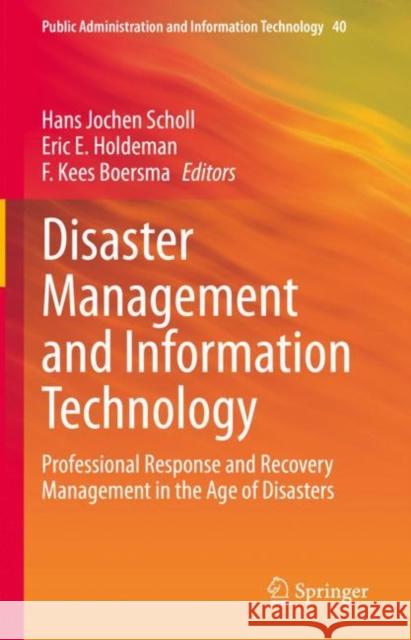Disaster Management and Information Technology: Professional Response and Recovery Management in the Age of Disasters » książka
Disaster Management and Information Technology: Professional Response and Recovery Management in the Age of Disasters
ISBN-13: 9783031209383 / Angielski / Twarda / 2023 / 292 str.
Disaster Management and Information Technology: Professional Response and Recovery Management in the Age of Disasters
ISBN-13: 9783031209383 / Angielski / Twarda / 2023 / 292 str.
(netto: 575,06 VAT: 5%)
Najniższa cena z 30 dni: 501,19
ok. 16-18 dni roboczych.
Darmowa dostawa!
This edited book entertains a multitude of perspectives on crisis information management systems (CIMS)-based disaster response and recovery management. The use of information technology in disaster management has become the central means for collecting, vetting, and distributing information. It also serves as the backbone for coordination and collaboration between response and recovery units as well as resource management tool. This edited volume aims at covering the whole range of application and uses of CIMS in disaster response and recovery. It showcases coordination and collaboration mechanisms between government agencies, the involvement of non-governmental entities, lessons learned as well as lessons not learned, approaches to disaster resiliency in society, community engagement in disaster/catastrophe responses and recovery, and, particularly, the role of CIMS in response and recovery. Serving as a platform for showcasing recent academic discoveries as well as a knowledge source for practitioners, this volume will be of interest to researchers and practitioners interested in disaster response, public administration, emergency management, and information systems.
This edited book entertains a multitude of perspectives on crisis information management systems (CIMS)-based disaster response and recovery management. The use of information technology in disaster management has become the central means for collecting, vetting, and distributing information. It also serves as the backbone for coordination and collaboration between response and recovery units as well as resource management tool. This edited volume aims at covering the whole range of application and uses of CIMS in disaster response and recovery. It showcases coordination and collaboration mechanisms between government agencies, the involvement of non-governmental entities, lessons learned as well as lessons not learned, approaches to disaster resiliency in society, community engagement in disaster/catastrophe responses and recovery, and, particularly, the role of CIMS in response and recovery. Serving as a platform for showcasing recent academic discoveries as well as a knowledge source for practitioners, this volume will be of interest to researchers and practitioners interested in disaster response, public administration, emergency management, and information systems.











